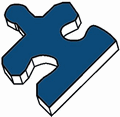Workshops
OOPSLE
The OOPSLE workshop is a discussion-oriented and collaborative forum for formulating and addressing with open, unsolved and unsolvable problems in software language engineering. It can help you define your problems or verify them on the early stage with the community.
“Software languages” comprise all kinds of artificial languages used in software development: for programming, markup, pretty-printing, modelling, data description, formal specification, evolution, etc. Software language engineering is a relatively new research domain of systematic, disciplined and measurable approaches of development, evolution and maintenance of such languages. The detailed list of possible topics can be found on the workshop website.
Everyone is invited to submit a position paper up to 4 pages in length, sketching an open or original problem, idea or challenge. Submissions are screened by the workshop chairs, who will select papers based on potential for discussion and interest to the community, as well as the clarity of presentation and motivation.
OOPSLE is not a mini-conference, and therefore it is not necessary for the work to be conclusive yet. The papers will be posted online prior to the workshop, so the participants have the opportunity to read them in advance.
Papers should be formatted according to the EC-EASST style and submitted electronically via EasyChair. The cover page is automatically produced and does not count towards the page limit.
Each accepted paper is presented at the workshop as a brief summary of its main idea and a set of open questions to be discussed with the audience. Presenters will ask for input on how to proceed with experiments, validation or refinement of their ideas, collect opinions on the presented definitions, share similar experience. We expect the participants to be friendly but inquisitive, and ask hard questions back that may lead to deepening the initially presented insights. The workshop is planned to have short presentations and long discussions to stimulate direct collaboration afterwards.
After the workshop, all participants will be invited to submit a full paper to a special issue of the Electronic Communications of the EASST, an open access peer-reviewed journal (negotiations underway). Journal submissions will undergo peer review by the members of the program committee consisting of researchers in software language engineering and reverse engineering.
Please see the website for more/updated information: http://oopsle.github.io/2014/
SQM (update 12/11)
SQM 2014 is the 8th International Workshop on Software Quality and Maintainability. The key concept and aim of this workshop is to give the opportunity to researchers to present their original work and to practitioners to relate their experiences on issues pertaining to system quality and maintainability and how to bridge the gap between end user expectations, business requirements, vendor performance, and engineering constraints. There are no restrictions regarding the background of the participants. Both researchers and practitioners are welcomed.
Website http://sqm2014.sig.eu
We solicit submissions on research articles, empirical studies, industry practices and experiences (success or failure) with: Software quality attributes and quality requirements; Software economics and technical debt; Software measurement and metrics; Software maintainability and traceability; Software quality assessment; Software quality standards and compliance; Software quality certification; Estimation, prediction, evolution and trends for all of the above.
Both short position papers or long papers are accepted. Submission is through EasyChair https://www.easychair.org/conferences/?conf=sqm2014. Acceptance will be on the basis of peer review by an international programme committee.
IMPORTANT DATES: please refer to http://sqm2014.sig.eu
ORGANIZERS
- Lodewijk Bergmans, Software Improvement Group, The Netherlands, l.bergmans@sig.eu
- Tom Mens, University of Mons, Belgium, tom.mens@umons.ac.be
- Steven Raemaekers, Software Improvement Group, The Netherlands, s.raemaekers@sig.eu
IWSC (update 12/11)
The 8th International Worskhop on Software Clones (IWSC) 2014 is the premier international workshop on software clones, that is, similarity and redundancy in all kinds of software artefacts such as source code, models, and requirement specifications.
The purpose of this workshop is to provide a common forum for this important research area as it continues to grow in application breadth and technical depth. The goal is to bring together researchers and practitioners to evaluate the current state of research, discuss common problems and emerging directions (such as clone detection in software models, clone analysis in re-engineering for reuse, clone analysis in software evolution, and clone detection in copyright and plagiarism), to exchange ideas and discover new opportunities for collaboration, to explore and envision new applications and areas of research, and to present and discuss new empirical results, new insights and new approaches in clone analysis and detection.
Website http://www.softwareclones.org/iwsc2014/
We solicit full research papers limited to a maximum of 7 pages in the IEEE proceedings format, position papers (2 pages) and tool demonstration papers (2 pages) on all topics related to software clones, as for instance, on use cases for clones and clone management in the software lifecycle, experiences with clones and clone management in practice, types and nature of clones in software systems, causes and effects of clones, techniques and algorithms for clone detection, search, analysis, and management, clone and clone pattern visualization, tools and systems for detecting software clones, applications of clone detection and analysis, system architecture and clones, effect of clones to system complexity and quality, clone analysis in families of similar systems, measures of code similarity, economic and trade-off models for clone removal, revaluation and benchmarking of detection methods, licensing and plagiarism issues, clone-aware software design and development, refactoring through clone analysis, higher-level clones in models and designs, clone evolution and variation, role of clones in software system evolution.
All types of papers will be formally reviewed by at least three members of the program committee (PC), and final decisions will be discussed by the PC as a whole. Submission is through EasyChair https://www.easychair.org/conferences/?conf=iwsc2014.
Papers will be published in the Electronic Communications of the EASST, an electronic open-access journal free of charges for both readers and authors.
The organizers can be reached by mail at iwsc2014@fenrir.ics.es.osaka-u.ac.jp.
IMPORTANT DATES: please refer to http://www.softwareclones.org/iwsc2014/
ORGANIZERS
- Rainer Koschke (General Chair), University of Bremen, Germany
- Nils Göde (PC co-Chair), CQSE GmbH, Munich, Germany
- Yoshiki Higo (PC co-Chair), Osaka University, Japan






